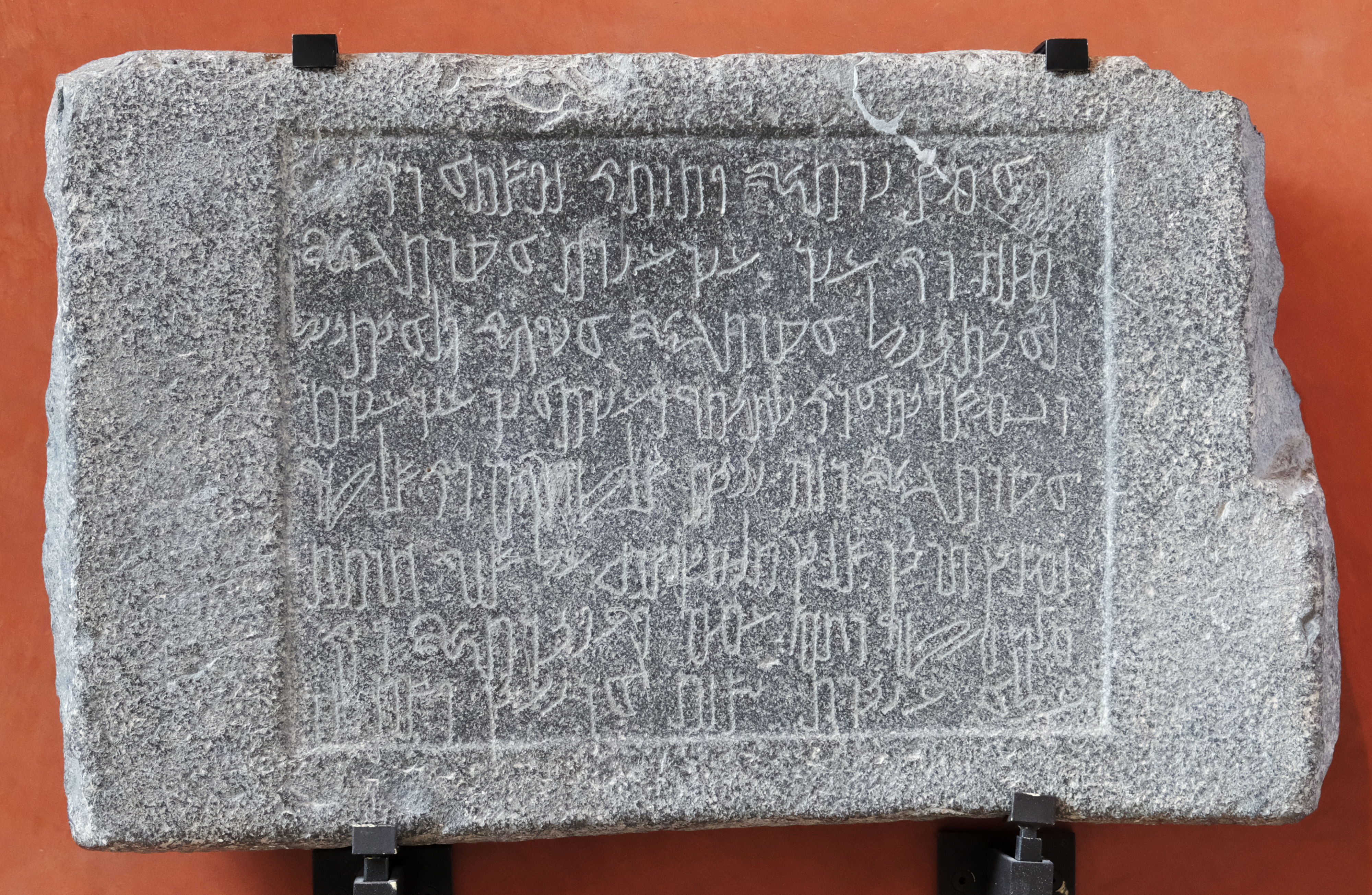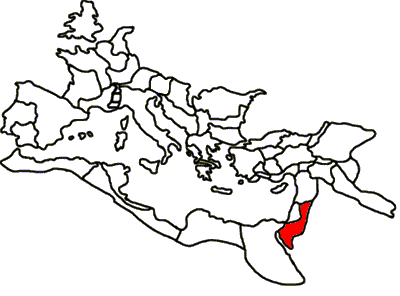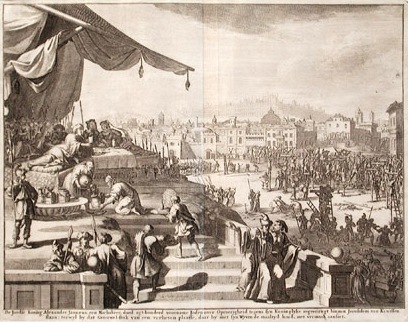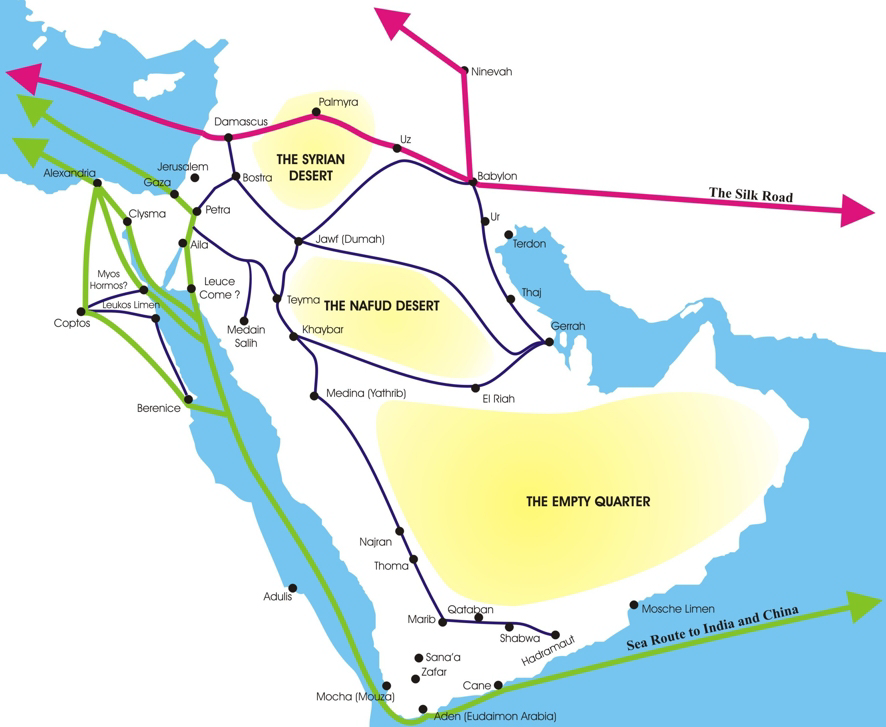|
Aretas II
Aretas II (; Nabataean Aramaic: ''Ḥārīṯat''; el, Αρέτας ''Arétās'') was the King of the Nabateans. Succeeding Rabbel I, his reign began in 103 BCE and he ruled until 96 BCE. Aretas II was a contemporary of the Hasmonean king Alexander Jannaeus, whose expansionist policies were a direct threat to the Nabatean Kingdom. During the siege of Gaza Gaza may refer to: Places Palestine * Gaza Strip, a Palestinian territory on the eastern coast of the Mediterranean Sea ** Gaza City, a city in the Gaza Strip ** Gaza Governorate, a governorate in the Gaza Strip Lebanon * Ghazzeh, a village in ... by Jannaeus in 99, the besieged Gazans requested help from "Aretas, King of the Arabs", but he did not come to their aid and the city was destroyed. Aretas is credited with beginning Nabatean minting.Shatzman, 1991, p.109. See also * List of rulers of Nabatea References Bibliography * * {{DEFAULTSORT:Aretas 02 2nd-century BC Nabataean monarchs 1st-century BC Nabataean ... [...More Info...] [...Related Items...] OR: [Wikipedia] [Google] [Baidu] |
Nabataean Aramaic
Nabataean Aramaic is the Aramaic variety used in inscriptions by the Nabataeans of the East Bank of the Jordan River, the Negev, and the Sinai Peninsula. Compared to other varieties of Aramaic, it is notable for the occurrence of a number of loanwords and grammatical borrowings from Arabic or other North Arabian languages.Butts, Aaron M"North Arabian Features in the Nabataean Aramaic Inscriptions from Madāʼin Ṣāliḥ: A Contact-Linguistic Analysis" in G.J. Brooke et al. (eds), ''Near Eastern and Arabian Essays: Studies in Honour of John F. Healey'' (Journal of Semitic Studies Supplement 41; Oxford: Oxford University Press), 39–57. Attested in several dozen longer dedicatory and funerary inscriptions and a few legal documents from the period of the Nabataean Kingdom, Nabataean Aramaic remained in use for several centuries after the kingdom's annexation by the Roman Empire in 106 AD. Over time, the distinctive Nabataean script was increasingly used to write texts in the Ara ... [...More Info...] [...Related Items...] OR: [Wikipedia] [Google] [Baidu] |
Nabateans
The Nabataeans or Nabateans (; Nabataean Aramaic: , , vocalized as ; Arabic: , , singular , ; compare grc, Ναβαταῖος, translit=Nabataîos; la, Nabataeus) were an ancient Arab people who inhabited northern Arabia and the southern Levant. Their settlements—most prominently the assumed capital city of Raqmu (present-day Petra, Jordan)—gave the name ''Nabatene'' ( grc, Ναβατηνή, translit=Nabatēnḗ) to the Arabian borderland that stretched from the Euphrates to the Red Sea. The Nabateans emerged as a distinct civilization and political entity between the 4th and 2nd centuries BCE,Taylor, Jane (2001). ''Petra and the Lost Kingdom of the Nabataeans''. London: I.B.Tauris. pp. 14, 17, 30, 31. . Retrieved 8 July 2016. with their kingdom centered around a loosely controlled trading network that brought considerable wealth and influence across the ancient world. Described as fiercely independent by contemporary Greco-Roman accounts, the Nabataeans were annexed ... [...More Info...] [...Related Items...] OR: [Wikipedia] [Google] [Baidu] |
Alexander Jannaeus
Alexander Jannaeus ( grc-gre, Ἀλέξανδρος Ἰανναῖος ; he, ''Yannaʾy''; born Jonathan ) was the second king of the Hasmonean dynasty, who ruled over an expanding kingdom of Judea from 103 to 76 BCE. A son of John Hyrcanus, he inherited the throne from his brother Aristobulus I, and married his brother's widow, Queen Salome Alexandra. From his conquests to expand the kingdom to a bloody civil war, Alexander's reign has been generalised as cruel and oppressive with never-ending conflict. The major historical sources of Alexander's life are Josephus's ''Antiquities of the Jews'' and '' The Jewish War''. The kingdom of Alexander Jannaeus was the largest and strongest known Jewish State outside of biblical sources, having conquered most of Palestine's Mediterranean coastline and regions surrounding the Jordan River. Alexander also had many of his subjects killed for their disapproval of his handling of state affairs. Due to his territorial expansion and inte ... [...More Info...] [...Related Items...] OR: [Wikipedia] [Google] [Baidu] |
Nabatean Kingdom
The Nabataean Kingdom ( Nabataean Aramaic: 𐢕𐢃𐢋𐢈 ''Nabāṭū''), also named Nabatea (), was a political state of the Arab Nabataeans during classical antiquity. The Nabataean Kingdom controlled many of the trade routes of the region, amassing large wealth and drawing the envy of its neighbors. It stretched south along the Red Sea coast into the Hejaz, up as far north as Damascus, which it controlled for a short period (85–71 BC). Nabataea remained an independent political entity from the mid-3rd century BC until it was annexed in AD 106 by the Roman Empire, which renamed it Arabia Petraea. History Nabataeans The Nabataeans were one among several nomadic Bedouin tribes that roamed the Arabian Desert and moved with their herds to wherever they could find pasture and water. They became familiar with their area as seasons passed, and they struggled to survive during bad years when seasonal rainfall diminished. Although the Nabataeans were initially embedded in A ... [...More Info...] [...Related Items...] OR: [Wikipedia] [Google] [Baidu] |
Gaza City
Gaza (;''The New Oxford Dictionary of English'' (1998), , p. 761 "Gaza Strip /'gɑːzə/ a strip of territory in Palestine, on the SE Mediterranean coast including the town of Gaza...". ar, غَزَّة ', ), also referred to as Gaza City, is a Palestinian city in the Gaza Strip, with a population of 590,481 (in 2017), making it the largest city in the State of Palestine. Inhabited since at least the 15th century BCE, Gaza has been dominated by several different peoples and empires throughout its history. The Philistines made it a part of their pentapolis after the Ancient Egyptians had ruled it for nearly 350 years. Under the Roman Empire Gaza experienced relative peace and its port flourished. In 635 CE, it became the first city in Palestine to be conquered by the Muslim Rashidun army and quickly developed into a center of Islamic law. However, by the time the Crusaders invaded the country starting in 1099, Gaza was in ruins. In later centuries, Gaza experienced sever ... [...More Info...] [...Related Items...] OR: [Wikipedia] [Google] [Baidu] |
List Of Rulers Of Nabatea ...
The Rulers of Nabataea, reigned over the Nabataean Kingdom (also rendered as ''Nabataea'', ''Nabatea'', or ''Nabathea''), inhabited by the Nabateans, located in present-day Jordan, southern Syria, southern Israel and north-western Saudi Arabia. The queens of the later Nabataean Kingdom figure side by side with their husbands as co-rulers on their coins. List See also *Lists of office-holders References {{Reflist Sources''Jewish Virtual Library''*Martha Ross, ''Rulers and Governments of the World – Vol1, Earliest Times to 1491''. London & New York: Bowker Publishing Company, 1978. Nabataean monarchs Nabatea Nabataeans Nabatea Nabatean The Nabataeans or Nabateans (; Nabataean Aramaic: , , vocalized as ; Arabic: , , singular , ; compare grc, Ναβαταῖος, translit=Nabataîos; la, Nabataeus) were an ancient Arab people who inhabited northern Arabia and the southern L ... [...More Info...] [...Related Items...] OR: [Wikipedia] [Google] [Baidu] |
1st-century BC Nabataean Monarchs
The 1st century was the century spanning AD 1 ( I) through AD 100 ( C) according to the Julian calendar. It is often written as the or to distinguish it from the 1st century BC (or BCE) which preceded it. The 1st century is considered part of the Classical era, epoch, or historical period. The 1st century also saw the appearance of Christianity. During this period, Europe, North Africa and the Near East fell under increasing domination by the Roman Empire, which continued expanding, most notably conquering Britain under the emperor Claudius (AD 43). The reforms introduced by Augustus during his long reign stabilized the empire after the turmoil of the previous century's civil wars. Later in the century the Julio-Claudian dynasty, which had been founded by Augustus, came to an end with the suicide of Nero in AD 68. There followed the famous Year of Four Emperors, a brief period of civil war and instability, which was finally brought to an end by Vespasian, ninth Roman emperor, ... [...More Info...] [...Related Items...] OR: [Wikipedia] [Google] [Baidu] |





